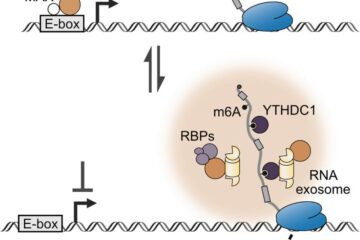T7-O-me-RNA-Polymerase – Tailored Polymerase for efficient synthesis of stable RNA

RNA is increasingly being used as a tool in a broad range of applications, e.g. as aptamers, in particular as an active agent in innovative therapeutic approaches.
However, these applications require the modification of RNA which otherwise shows poor resistance to cellular nucleases. To this end, typically the ribose 2´-hydroxyl moieties are substituted by O-methyl groups. This step is hampered by the fact that wild-type RNA-Polymerase is inefficient in incorporating modified nucleotides. Although mutant enzymes have been engineered which are able to insert some or even all 2´-O-me-modified nucleotides, none of the enzymes present so far is able to synthesize transcripts of sufficient lengths. By an in-depth analysis of the T7-RNA-Polymerase and protein engineering, the inventors were able to create a variant which is both a generalist polymerase capable of incorporating all 2´-O-me-modified nucleotides as well as synthesizing fully modified RNA of up to approx. 1,000 nucleotides. Commercial Opportunity The inventive enzyme is broadly applicable in molecular and cellular biology both in academia and in industry. Furthermore, the inventive enzyme is a key tool for developing novel RNA-based therapeutic approaches.
Weitere Informationen: PDF
PROvendis GmbH
Tel.: +49 (0)208/94105 10
Ansprechpartner
Dipl.-Ing. Alfred Schillert
Media Contact
Alle Nachrichten aus der Kategorie: Technologieangebote
Neueste Beiträge

Forschende enthüllen neue Funktion von Onkoproteinen
Forschende der Uni Würzburg haben herausgefunden: Das Onkoprotein MYCN lässt Krebszellen nicht nur stärker wachsen, sondern macht sie auch resistenter gegen Medikamente. Für die Entwicklung neuer Therapien ist das ein…

Mit Kleinsatelliten den Asteroiden Apophis erforschen
In fünf Jahren fliegt ein größerer Asteroid sehr nah an der Erde vorbei – eine einmalige Chance, ihn zu erforschen. An der Uni Würzburg werden Konzepte für eine nationale Kleinsatellitenmission…

Zellskelett-Gene regulieren Vernetzung im Säugerhirn
Marburger Forschungsteam beleuchtet, wie Nervenzellen Netzwerke bilden. Ein Molekülpaar zu trennen, hat Auswirkungen auf das Networking im Hirn: So lässt sich zusammenfassen, was eine Marburger Forschungsgruppe jetzt über die Vernetzung…

















